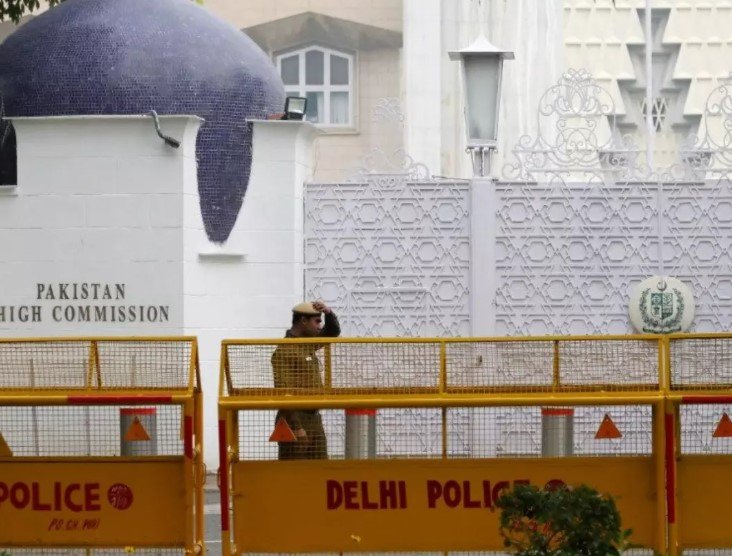Tit-for-tat expulsions rattle fragile ties amid growing mistrust
In a move that underscores just how tense things have gotten between New Delhi and Islamabad, both countries have expelled each other’s diplomatic staff, reigniting diplomatic anxieties and throwing bilateral communication into deeper uncertainty.
Pakistan booted out an Indian High Commission staffer on Tuesday, just hours after India did the same to a Pakistani official in Delhi. Both were accused of engaging in “activities incompatible with their diplomatic status”—a phrase that’s diplomatic shorthand for suspected espionage or intelligence gathering.
A Quiet Morning, Then the Spark Lit
It all started with India. Early Tuesday, the Ministry of External Affairs issued a sharp statement, declaring a Pakistani official stationed at the Pakistan High Commission in New Delhi “persona non grata.” The statement didn’t name the individual but was blunt in tone, saying the official had “indulged in activities incompatible with diplomatic status.” Within hours, he was asked to pack his bags and leave the country within 24 hours.
Pakistan didn’t take long to respond.
By afternoon, the Foreign Office in Islamabad summoned the Indian Charge d’Affaires and handed over a demarche. Shortly after, it tweeted its own declaration: a staff member at the Indian High Commission in Islamabad was being expelled on the same grounds.
One sentence summed up Pakistan’s stance: “The concerned official has been directed to leave Pakistan within 24 hours.”
Just like that, a new round of diplomatic retaliation was in motion.

Not the First Time, and Probably Not the Last
For those who’ve followed India-Pakistan relations over the years, this script isn’t exactly new. Diplomatic expulsions—often veiled as responses to security threats—have punctuated tensions between the two nuclear-armed neighbors for decades.
Here’s a quick reminder of past incidents:
-
In 2016, India expelled a Pakistani High Commission official accused of espionage. Pakistan responded in kind.
-
In 2003, several Indian diplomats were pulled out of Pakistan following a string of accusations.
-
During the Kargil conflict in 1999, both countries reduced their diplomatic presence to minimal levels.
Each time, both sides deny wrongdoing. Each time, the pattern repeats.
What Exactly Did They Do?
Here’s the thing—no one’s saying much. When diplomats are declared persona non grata, governments often keep the details hush-hush. It’s about saving face, avoiding escalation, and keeping things as civil as possible, given the circumstances.
Still, phrases like “incompatible with diplomatic status” usually hint at something more than just a few broken protocol rules. It’s often a stand-in for suspected intelligence work.
Indian officials haven’t publicly elaborated on the nature of the expelled Pakistani officer’s actions. Same with Pakistan. What’s clear, though, is that both sides want the public to know they acted in response, not on impulse.
Strategic Optics, Not Just Symbolism
Don’t be fooled into thinking this is just about one-upmanship. These moves are more than symbolic.
In fact, diplomatic expulsions serve a few real-world purposes:
-
They send a strong public message of intolerance toward covert activities.
-
They rally domestic audiences by projecting strength and sovereignty.
-
They act as controlled pressure valves—strong action, but not war.
It’s like pushing someone back without throwing a punch.
For India, coming off the heels of Operation Sindoor and PM Modi’s high-visibility visit to Adampur Airbase, the expulsion shows continued assertiveness. For Pakistan, the reply reaffirms its posture of parity, a key theme in its diplomatic playbook.
Table: Key Diplomatic Expulsions Between India and Pakistan
| Year | Trigger | Indian Action | Pakistani Response |
|---|---|---|---|
| 1999 | Kargil War | Expelled diplomats | Expelled Indian diplomats |
| 2003 | Tensions post-Parliament attack | Reduced staff presence | Mirrored reduction |
| 2016 | Espionage charges on Pakistani staffer | Expelled official from Delhi | Expelled Indian official from Islamabad |
| 2025 | “Incompatible activities” | Expelled Pakistani High Commission staff | Expelled Indian High Commission staff |
One sentence summaries are easier to process than rhetoric.
Why It Matters Now More Than Ever
What makes this spat feel different is the context. India and Pakistan are already walking on eggshells.
Just last week, there was a four-day military skirmish, dubbed “Operation Sindoor” by Indian media. While details are still sparse, it’s believed to have involved targeted retaliatory strikes across the LoC. Modi’s visit to the Adampur Airbase wasn’t just a morale boost—it was a televised warning.
All of this makes the diplomatic fallout feel like another domino tipping over. These aren’t isolated events. They’re part of a longer chain.
Backchannel Talks? Don’t Count on It
Normally, when things get testy, backchannels buzz. But this time? Not much.
Since 2019, after India revoked Article 370 and changed Jammu and Kashmir’s constitutional status, Pakistan downgraded diplomatic ties. High Commissioners were never reinstated. That left both countries with skeletal missions, and very little in terms of meaningful dialogue.
Without high-level diplomats in place, and now with lower-level staff being sent home, even routine communication could slow to a crawl.
What’s Next?
No official word on whether more expulsions are coming. But if the past is any guide, both sides may let this one simmer for a while before deciding their next move.
Still, questions linger:
-
Will there be another round of expulsions if further allegations arise?
-
Could this impact consular services for ordinary citizens, like visas or trade permits?
-
And is this the prelude to something bigger—or just the latest in a long series of diplomatic tit-for-tats?
Too soon to say. But the clock’s ticking, and every hour that passes without resolution makes it harder to hit reset.
